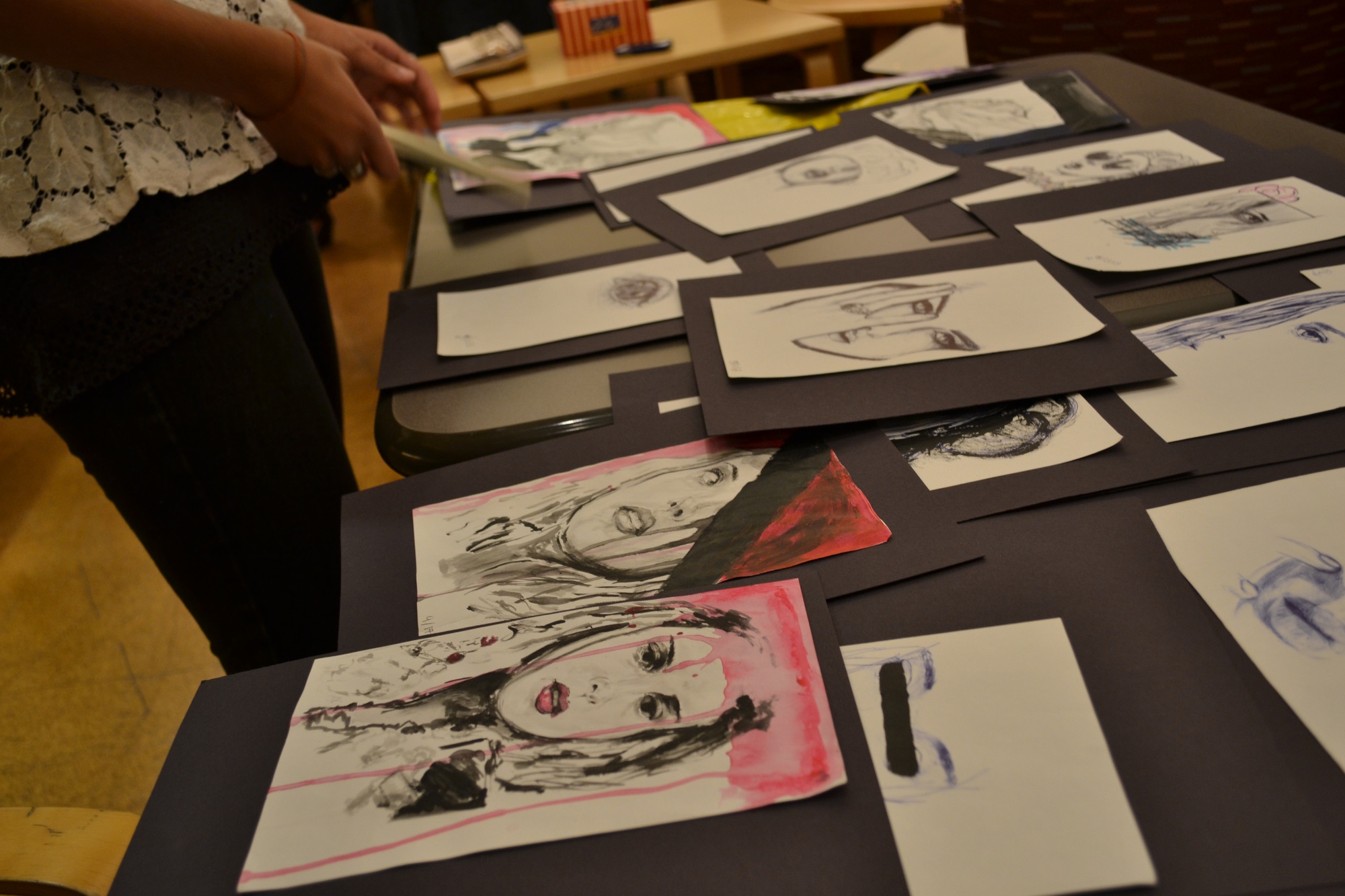
News
Summers Will Not Finish Semester of Teaching as Harvard Investigates Epstein Ties

News
Harvard College Students Report Favoring Divestment from Israel in HUA Survey

News
‘He Should Resign’: Harvard Undergrads Take Hard Line Against Summers Over Epstein Scandal

News
Harvard To Launch New Investigation Into Epstein’s Ties to Summers, Other University Affiliates

News
Harvard Students To Vote on Divestment From Israel in Inaugural HUA Election Survey
BlackC.A.S.T. Spotlights Art

Poetry, music, and theater collided on Friday in Ticknor Lounge as the Black Community and Student Theater group hosted its first annual Spotlight. BlackC.A.S.T., a student arts group that has previously hosted poetry slams and theater events on campus, produced a show consisting of several acts of spoken word poetry, an original song, visual art, and a dramatic monologue, all by Harvard College students.
"Spotlight is really meant to offer a place for people, whatever their art form is, to perform that, to showcase that—particularly people of color, who sometimes don’t have that opportunity on campus," BlackC.A.S.T. president Lanair A. Lett ’14 says. "[BlackC.A.S.T. has] done poetry slams in the past, but this is our first Spotlight, the first time we’ve integrated so many different art forms into one thing." The organization’s past events have included the musical "Dreamgirls," which was performed at Farkas Hall in late April and early May 2013, and the play "Medea," which took place in Cabot Theater in November 2012. The Spotlight differs from these past productions due to its breadth of content and diversity of performers.
Citing the showcase’s original song, monologue, and visual art display, BlackC.A.S.T. vice president Alexis J. Smith ’15 says, "it’s not just spoken word, and it’s not just that we do theater…. We want to be an art space for people of color who don’t always necessarily have that opportunity."
One performer, Bri S. Belser ’15, who performed the event’s original song, entitled "Penny," took this opportunity to share a personal struggle for the first time. "‘Penny’ is a song that I wrote this summer…. It’s about healing after heartbreak, which is so cliché, but I never realized how much being heartbroken could take out of you," she says. "Writing this song, it just got it on paper. It was cathartic, and I just felt like I had to share my healing with the world."
The show’s spoken performances were poetry and readings of published works. "I really enjoyed all the spoken word, since so many people wrote their own pieces," says Yinka A. Akintujoye ’16, who performed a monologue from "Beloved" by Toni Morrison. "You think that just because someone doesn’t have experience with performing that they won’t be able to do well, but when you feel passionately about something, it obviously comes out, and everybody can grasp your feelings easily."
The spoken word poetry tapped into many passionate emotions, from friendship and identity to issues within and beyond the black community. "[You hear] a lot of spoken word about things relevant to people of color…. It was very much about reclaiming their ancestry, about being proud of who they are and their color, and it was very relatable for me personally," Lett says. The performances addressed a variety of issues, ranging from the personal to the political.
In particular, Lett mentioned the piece "Latina Legalese" by Daily Guerrero ‘14 as an example of a work that amazed him. Guerrero describes her poem as both educational and entertaining. "I really wanted to make a connection between the Latino and black community and how, in a way, all of these deportations are imprisoning a lot of people," she says. "So I tried to connect it with the prison-industrial complex and show a little bit more about what’s going on behind the scenes."
The event was intended to welcome contributors from a range of perspectives and backgrounds. "We’re very open people so we foster a space where, if you want to tell your story, we’ll welcome it and we’ll enjoy it," Lett says.
Smith says that it was great to see the ways in which people used the BlackC.A.S.T. platform to express themselves. "People find it so much easier to express things that they won’t necessarily say... in a poem, in a spoken word piece, in a song, and it’s just so beautiful that art allows you to do that."
Want to keep up with breaking news? Subscribe to our email newsletter.
